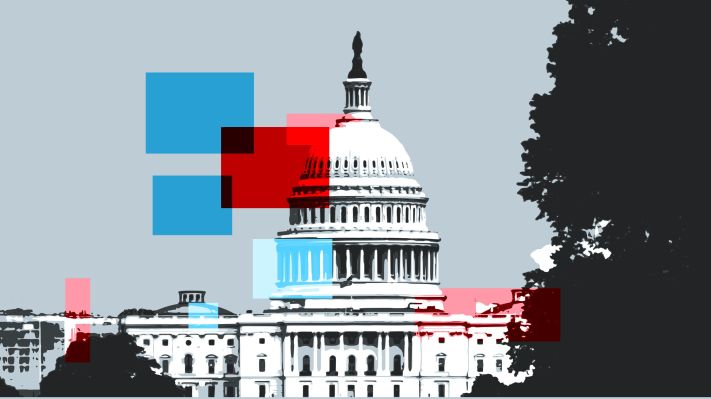A major Senate bill that would prevent tech companies from giving preference to their own products and services just passed a significant hurdle in Congress, bringing it one step closer to becoming law.
The Senate Judiciary Committee voted today on the American Innovation and Choice Online Act, moving the prominent antitrust bill toward a vote before the full Senate. The bill passed its committee vote 16-6 Thursday, with five Republicans joining Senate Democrats to press forward with the legislation.
The bill would prohibit tech platforms from “favoring their own products or services, disadvantaging rivals, or discriminating among businesses that use their platforms in a manner that would materially harm competition on the platform.” It would also forbid dominant platforms from preventing interoperability with other services and from leveraging another company’s data on the platform to compete against them.
To accomplish its goals, the American Innovation and Choice Online Act would empower antitrust enforcers with “strong, flexible tools,” including “civil penalties, authority to seek broad injunctions, emergency interim relief, and potential forfeiture of executive compensation.”
Sen. Amy Klobuchar (D-MN), who chairs the Senate Judiciary Subcommittee on Competition Policy, Antitrust, and Consumer Rights, hailed the legislation as the first major tech competition bill to head toward the Senate floor “since the dawn of the internet.” The bill could still see changes from a handful of amendments that didn’t impede its progress Thursday but may still impact its final language.
While it still has an uphill slog to make it into a crowded and mostly stalled out legislative agenda, the bill’s momentum was significant enough to prompt Google and Apple to both weigh in with comments earlier this week.
“Every day, millions of Americans use online services like Google Search, Maps and Gmail to find new information and get things done,” Alphabet Global Affairs President and Chief Legal Officer Kent Walker wrote in a blog post. “…Legislation being debated in the House and Senate could break these and other popular online services, making them less helpful and less secure, and damaging American competitiveness.”
Apple also sought to intervene, penning a letter to Senate Judiciary Chair Dick Durbin, the committee’s ranking Republican Chuck Grassley as well as Antitrust Subcommittee Chair Amy Klobuchar that subcommittee’s ranking member Mike Lee.
“After a tumultuous year that witnessed multiple controversies regarding social media, whistle-blower allegations of long-ignored risks to children, and ransomware attacks that hobbled critical infrastructure, it would be ironic if Congress responds by making it much harder to protect the privacy and security of Americans’ personal devices,” Apple Senior Director of Government Affairs Tim Powderly wrote. “Unfortunately, that is what these bills would do.”
Both companies argued that the bill along with another piece of legislation, the Open App Markets Act, would be a detriment to consumer security. The latter bill would force companies that control operating systems to allow third-party apps and app stores and allow developers to tell consumers where they could find the same software at better prices.
A group of tech companies that included Yelp, DuckDuckGo, Sonos, Spotify, Proton, Match Group and the startup accelerator Y Combinator along with the venture capital firm Initialized Capital spoke out in favor of the anti-self preferencing legislation earlier this week.
“Findings from the United States and governments around the world reveal the many anticompetitive self-preferencing tactics dominant technology companies use to attain and entrench their gatekeeper status in the market to the detriment of competition, consumers, and innovation,” the companies wrote. “The American Innovation and Choice Online Act… targets self-preferencing to help restore competition in the digital marketplace and remove barriers for consumers to choose the services they want.”
Regulating the tech industry is a rare issue that inspires bipartisan cooperation in Congress — another sign that the tech industry should expect new restrictions on its business, even if those proposals still progress at a crawl.
The bill was introduced by by Senators Amy Klobuchar (D-MN) and Chuck Grassley (R-IA) and is co-sponsored by Dick Durbin (D-IL), Lindsey Graham (R-SC), Richard Blumenthal (D-CT), John Kennedy (R-LA), Cory Booker (D-NJ), Cynthia Lummis (R-WY), Mark Warner (D-VA), Mazie Hirono (D-HI), Josh Hawley (R-MO), Sheldon Whitehouse (D-RI) and Steve Daines (R-MT).
The House version of the bill, led by House Antitrust Subcommittee Chairman David N. Cicilline (D-RI) and Ranking Member Ken Buck (R-CO), is already out of committee and ready for a vote.
